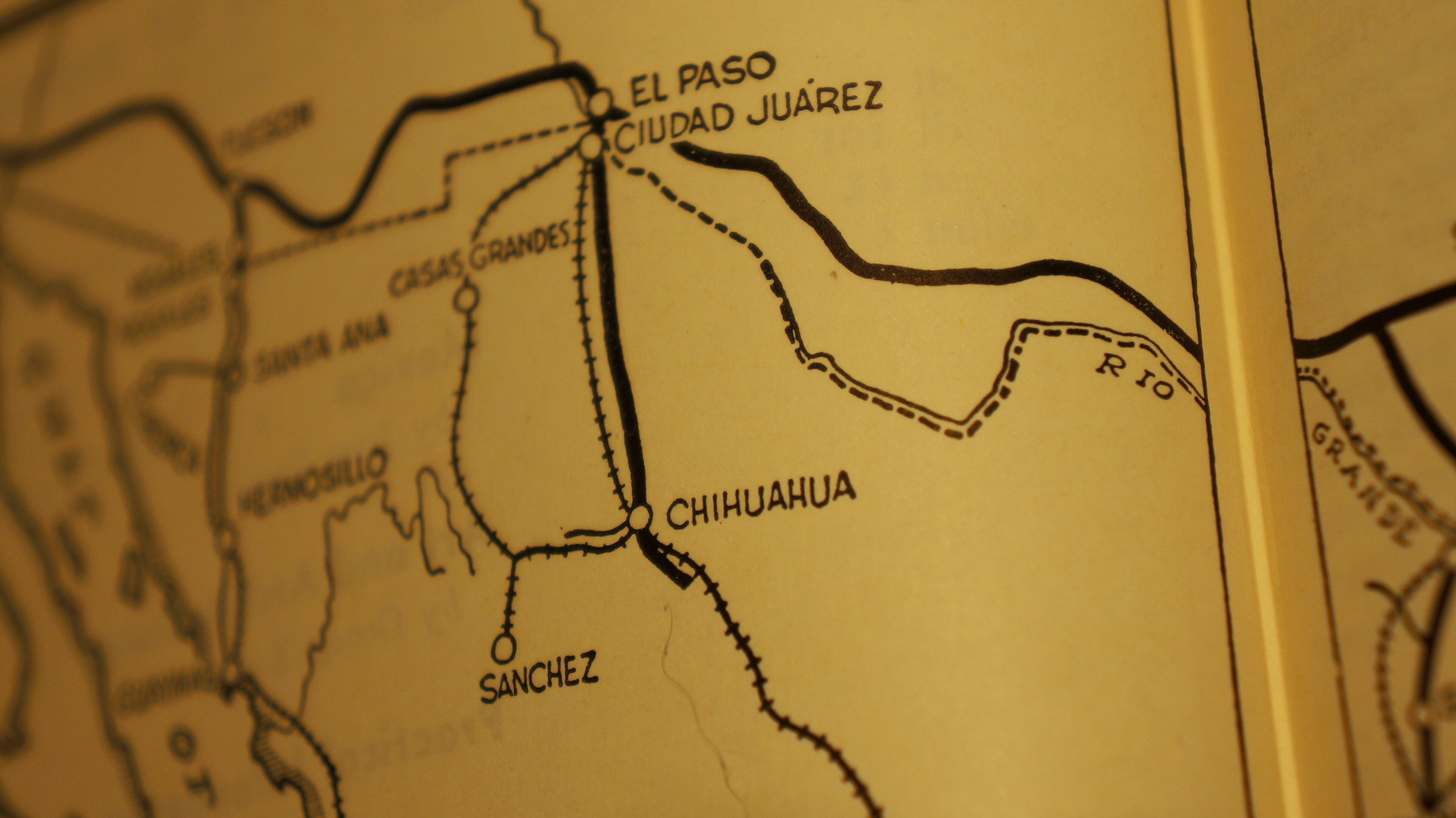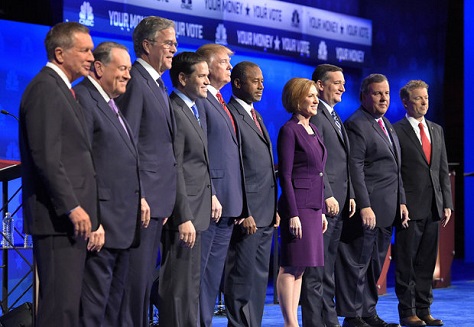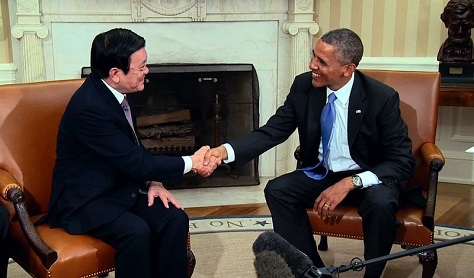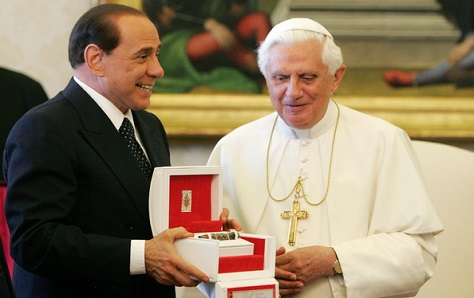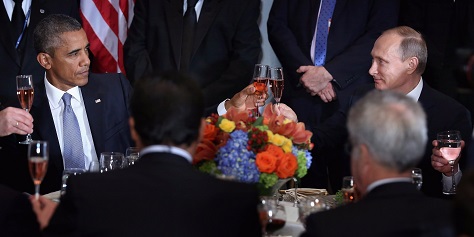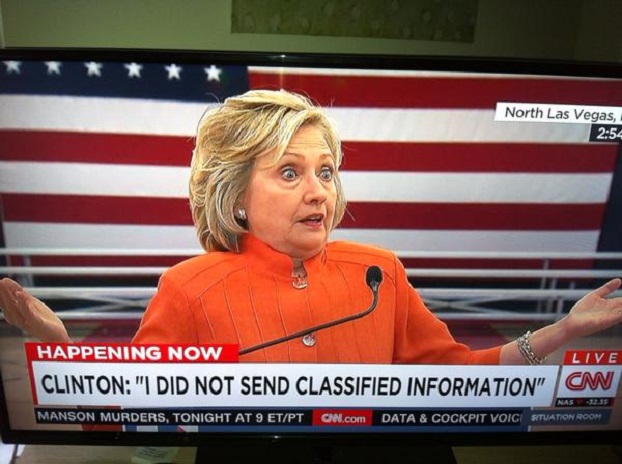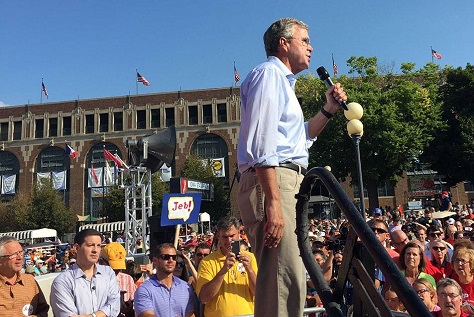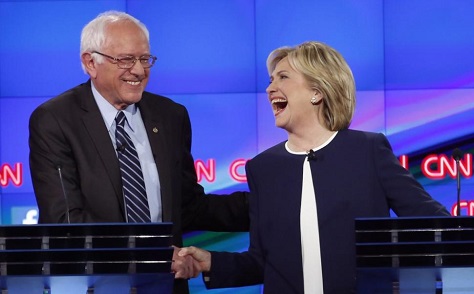
Tuesday night’s Democratic presidential debate had barely started when the two leading contenders, former US secretary of state Hillary Clinton and US senator Bernie Sanders of Vermont immediately clashed.

Over Denmark.
That’s right. Before Iran or Cuba, Syria or Russia, the US Democratic debate began with a minor tussle over a small Nordic country that’s home to just 5.614 million people.
From the beginning of his campaign, Sanders has called for a Nordic-style state that pays for single-payer health care, free education and other state-provided benefits, and he defended the Nordic model as a lodestar for US policy-making on Tuesday night:
Those are some of the principles that I believe in, and I think we should look to countries like Denmark, like Sweden and Norway, and learn from what they have accomplished for their working people.
Clinton, for her part, argued that the Danish model wasn’t particularly well suited for the United States:
But we are not Denmark. I love Denmark. We are the United States of America. And it’s our job to rein in the excesses of capitalism so that it doesn’t run amok and doesn’t cause the kind of inequities we’re seeing in our economic system.
Neither candidate necessarily went beyond a surface-level comparison with the Nordics, though.
When Sanders — a self-described ‘democratic socialist’ — refers to the Nordic model, he’s referring to a generic set of policies that describe a typically high-tax, high-services government that provides health care, education, child care, ample family leave, copious unemployment benefits and, in some cases, up to five weeks of annual vacation time for workers. It’s often described as a kind of hybrid system that melds elements of socialism and capitalism. Denmark proportionately spends more than 150% on social welfare spending than the United States — 30.1% of GDP, compared to the US standard of 19.2%.
Increasingly, however, across the Nordics, the rise of center-right and sometimes far-right groups have succeeded in reforming that understanding of the welfare state by trimming benefits and reducing taxes, all while pushing for policies that encourage innovation and easing business regulation. Today, there are center-right governments in four of the five Nordics (Finland, Norway, Iceland and Denmark), and an eight-year, reformist center-right government ended just last autumn in Sweden under the still-popular former prime minister Göran Persson. In three of those countries, governments rely on hard-right and often anti-immigrant parties to support their policy agendas.
Taken together, the Nordics — and that includes Denmark — are generally some of the happiest, wealthiest, most productive and surprisingly competitive in the global marketplace.
But the story of the Nordic model is much more complex and nuanced, and there are reasons why it might work better in northern Europe than elsewhere, including the United States.
Here are eight features of the Danish system, in particular, that help explain some of that context — both good and bad.
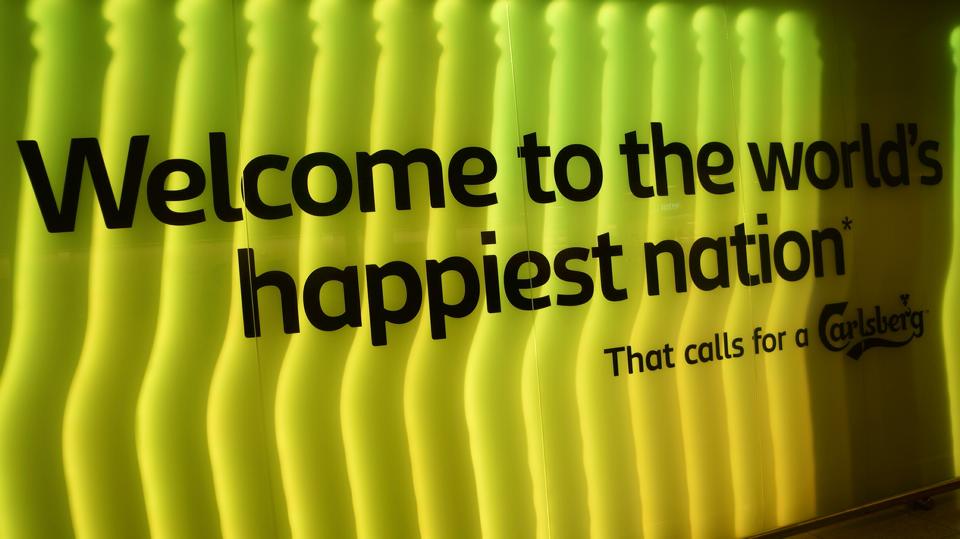
1. Denmark has been ranked the ‘happiest country in the world’
In Danish culture, there’s a concept called hygge, and it’s said that there’s really not an English language translation for it — warmth, coziness, contentment.
It’s one of the elements that motivates the Danish welfare state, and it explains why, for many Danes, consumerism isn’t as important as spending time with family, working reduced hours and using more free time to pursue individual hobbies and non-professional lives.
That explains, perhaps, why a couple of years ago, Denmark was ranked the happiest country in the world.
But it also explains why peculiarly Danish or Nordic or European cultural features do not easily translate in a country like the United States, and why policies based on Danish cultural attributes might not be nearly as popular in the American context.
2. Its reformed welfare state is actually pro-business
The fact of a strong welfare system isn’t necessarily incompatible with a pro-business orientation. As Marian Tupy wrote earlier for the Cato Institute, Denmark today is ranked as an easier place to do business than the United States, boasts a freer trade regime and slightly outpaces the United States on economic freedom.
Companies like Mærsk dominate global shipping, and Danske Bank is a key financial operator throughout northern Europe. But Denmark’s system has also unleashed as much creativity as commercialism. LEGO is a Danish concept, and the country spawned an entire school of designers in the mid 20th century Denmark, most notably the architect Arne Jacobsen. Today, there’s no more cutting-edge trend in cuisine than the ‘new Nordic’ cuisine, and its hub is Copenhagen, which is home to several Michelin-starred restaurants.
It’s true, however, that the Danish welfare state isn’t your father’s Nordic welfare state. Since the 1970s, successive center-right governments, including that of prime minister Anders Fogh Rasmussen in the 2000s, have tried to freeze tax increases or even lower taxes in certain cases, especially for business. Despite the enduring popularity of the Danish welfare state, Danes are increasingly aware of the demands that an aging population will make. So far, reforms include an increase in the retirement age from 65 to 67 gradually over the next eight years, a decrease in the limit for unemployment benefits from four years to just two and certain limits on grants provided to students.
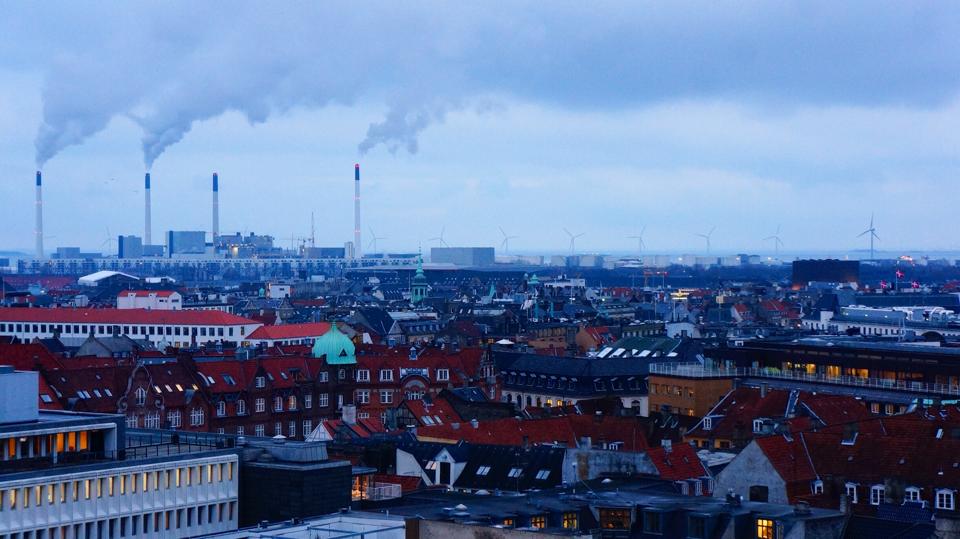
3. It gets nearly 50% of its electricity from wind power
Environmentalists also take much delight with Denmark. It was a leading developer of wind power as a renewable energy source in the 1980s, and today wind power amounts to 39% of Denmark’s total electricity consumption — and that’s set to rise to 50% within five years. On some particularly windy days, Denmark meets up to 140% of its total electricity needs.
Though the results of Denmark’s renewable energy program give heart to environmentalists, they should also perk up capitalists as well. Wind power is now big money, at least for Denmark, despite the highly subsidized start-up costs of building offshore wind farms. Moreover, its push to reduce its reliance on fossil fuels resulted from a sense of conservative prudence from the aftermath of the 1970s oil shocks.
4. Education, even for adults, is an important public value
One of Denmark’s national heroes is the 19th century philosopher Nikolaj Gruntvig, who is credited with formulating Denmark’s national education theory. That translated, from the 1840s onward, a dedication to the value of public education in Denmark. Even today, Denmark has a tradition of the folkehøjskole, or ‘folk high school,’ where adults can return to education to obtain new skills for their careers or even just for fun or for post-retirement intellectual stimulation.
That’s one of the reasons that free education is such a cherished value in Denmark. But it also shows that the roots of the Nordic welfare system are often centuries in the making. Unlike, say, in the United Kingdom, where universal government-run health care was a postwar phenomenon, the ingredients of the Danish welfare system lie in the rise of social democratic and agrarian political movements in the 19th century, and the communal spirit of compromise and reform goes back to the 18th century of beyond.
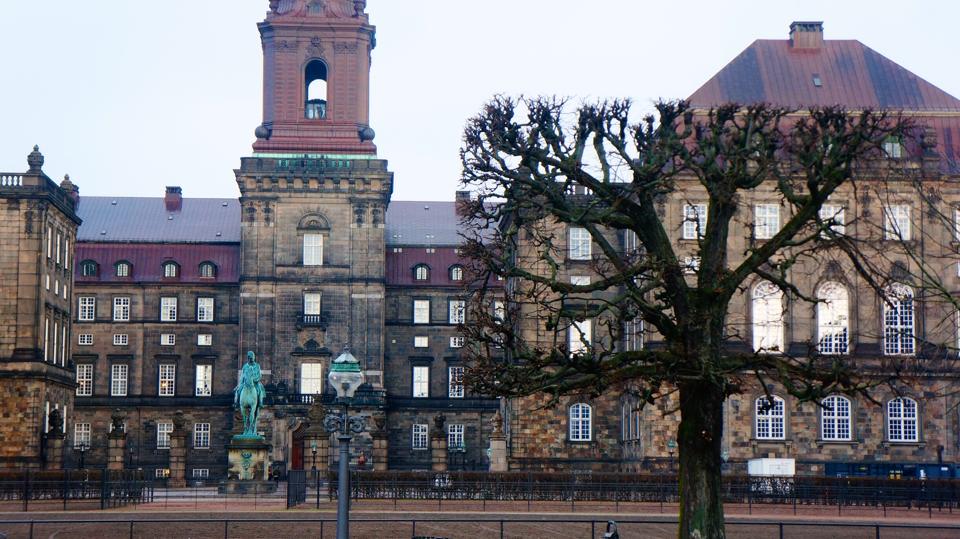
5. Freedom of information is key to government transparency
Scandinavian countries were some of the first countries to enact freedom-of-information laws. Sweden’s Freedom of the Press Act dates back to 1766, for example, and Nordic countries have generally pushed to expand the European Union’s freedom-of-information directives more widely. Denmark’s most recent law, the Access to Public Administration Files Act, even includes certain private and public energy suppliers in the scope of what’s covered.
That comes with its own benefits. Denmark ranked first in Transparency International’s 2014 Corruptions Perception Index — the United States ranked just 17th, far behind Denmark, Finland (3rd), Sweden (4th) and Norway (5th). The ethos of good government and transparency infuses every level of government (and it’s one of the motivating themes of the hit television series Borgen, a three-season show about the personal and professional lives of Danish politicians and journalists).
The perception that the Nordics are an essentially corruption-free zone are another reason why businesses are so keen on relocating there.
But it’s also the kind of place where an official like Clinton would never be able to get away with keeping a secret server, unbeknownst to the Obama administration, to conduct official and unofficial state business alike.
6. Family leave policies are quite generous
In Denmark, parents receive a full year of maternity and paternity leave — mothers are guaranteed 18 weeks and fathers are guaranteed two weeks, with a further 32 weeks to be split up as between the two parents as they see fit. That’s aside from a guarantee of up to five weeks of vacation time annually for workers.
Though no one expects Sanders (or anyone else, for that matter) to introduce single-payer health care to the United States, there is a growing sense that the United States should offer at least some basic parental leave. American workers currently have no federal guarantee of maternity or paternity leave nor do they have a right to vacation leave — something that makes the United States an extreme outlier throughout the developed world.
This is one area where there’s cause for optimism. If Clinton, as widely expected, wins the Democratic nomination, she will be well-placed as the first female nominee of a major party to make this a chief policy priority. There’s a great symbolism in the notion that the first American woman in the presidency will also implement the first universal maternity leave policy.
But it’s an issue that could resonate with conservatives as well. In the United Kingdom, prime minister David Cameron and the Conservative Party campaigned on extending tax credits for child care. Though he ultimately abandoned it, former Australian prime minister Tony Abbott, also a conservative, campaigned in 2013 on expanding paid parental leave. Certainly, social conservatives and Christian voters who value strong families might also champion a policy. It’s one area where, in an increasingly polarized political scene, both Republicans and Democrats might come to agree.
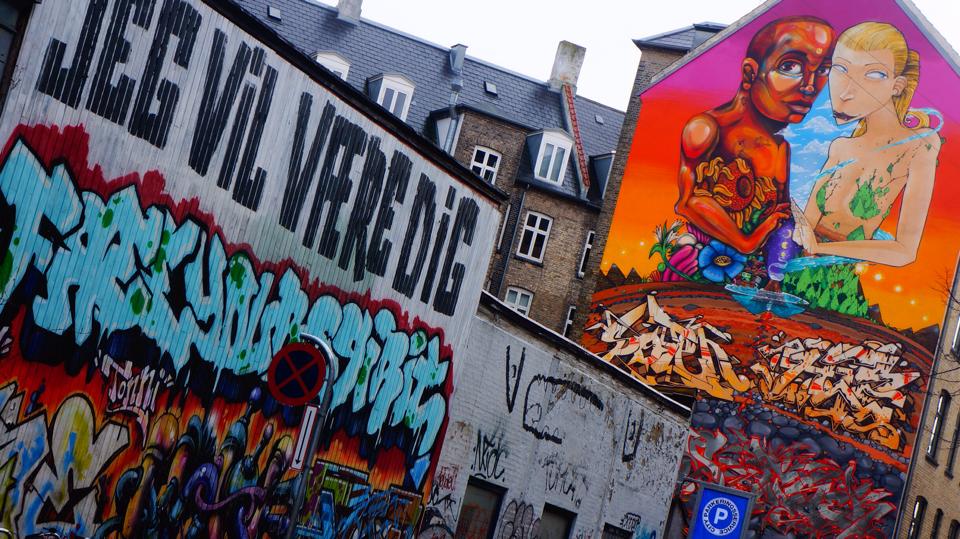
7. The population is more homogeneous —
and far less welcoming to immigrants
One of the theories behind the Nordic model’s success is that countries like Denmark have greater civic trust because they have small and, on the whole, homogeneous populations. That’s one of the reasons that critics say a Nordic-style approach would never work in such a sprawling and heterogeneous place like the United States.
But that also points to one of the darker sides of Danish policy.
Only recently, Denmark’s center-right government made global headlines for its unwelcoming attitude to mostly Muslim refugees arriving on European shores. It went so far as to take out Arabic-language advertisements in Lebanese newspapers noting that family reunification might not be possible and that public assistance for immigrants is now lower.
The message is clear — Denmark is not a particularly welcoming place for immigrants. Denmark, notably, opted out of the migration quota system agreed among the vast majority of EU nations earlier this year. In early December, Danes will vote in a referendum that could see the country ‘opt-out’ of certain justice and home affairs standards.
The anti-Islam and anti-migrant Dansk Folkeparti (Danish People’s Party) won more votes in the recent June 2015 snap elections than any other party, with the exception of former prime minister Helle Thorning-Schmidt’s center-left Socialdemokraterne (Social Democrats). As the Social Democrats’ left-wing allies lost votes, it remained for the third-placed center-right Venestre to form a minority government under current prime minister Lars Løkke Rasmussen, who depends on the People’s Party as well as other smaller center-right parties to govern.
The rise of the Danish far-right (and the Scandinavian far-right in general) has pushed both of the major parties toward less migrant-friendly positions. Even Thorning-Schmidt tried to co-opt that message earlier this year with billboards proclaiming that migrants to Denmark would have to find work. One of Rasmussen’s first actions as prime minister was to enact, in August, on a highly divided vote, a measure that cuts benefits by 45% for immigrants who have not lived in Denmark for seven of the last eight years.
Sweden, which remains far more welcoming of migrants, especially Syrians and others from outside the European Union, has not responded to the refugee crisis with the same level of closed-mindedness as the Danish. Nevertheless, growing antipathy toward immigrants (in Denmark and Sweden alike) and increasingly multicultural Nordic populations will certainly test the ‘homogeneity theory’ in the years ahead.
8. There’s not just ‘one’ Nordic model
Generally speaking, it’s a mistake to refer to a single Nordic model, because the five countries that comprise the Nordics are actually very different. Denmark and Sweden, on one hand, spent much of the past half-millennium as colonial powers. Norway, Iceland and Finland, on the other hand, spent much of the past half-millennium as subjugated colonies — Iceland won its independence from Denmark only in 1944, and Norway won its independence from Sweden in 1905. Today, that filters through culture and geography — Stockholm and Copenhagen are imperial cities, while Oslo and Helsinki are not.
Norway’s vast oil wealth, in particular, makes it a special case that has elements of other Nordic states, but also the problems that many petrostates face. Finland’s longtime relationship with Russia gives it a certain sensibility in European geostrategic matters (and that explains why both it and Sweden are still not members of NATO).
Neither Iceland nor Norway are members of the European Union, lest their rich fish stocks be subject to competition from Spanish and Greek fishermen. While Finland is a member of the eurozone, both Denmark and Sweden have retained their own national currencies and control over their monetary policy.
All of which is to say that even Scandinavians can’t agree on which ingredients are most key to their ‘model’ — and that makes its export outside the northern European context all the more difficult.
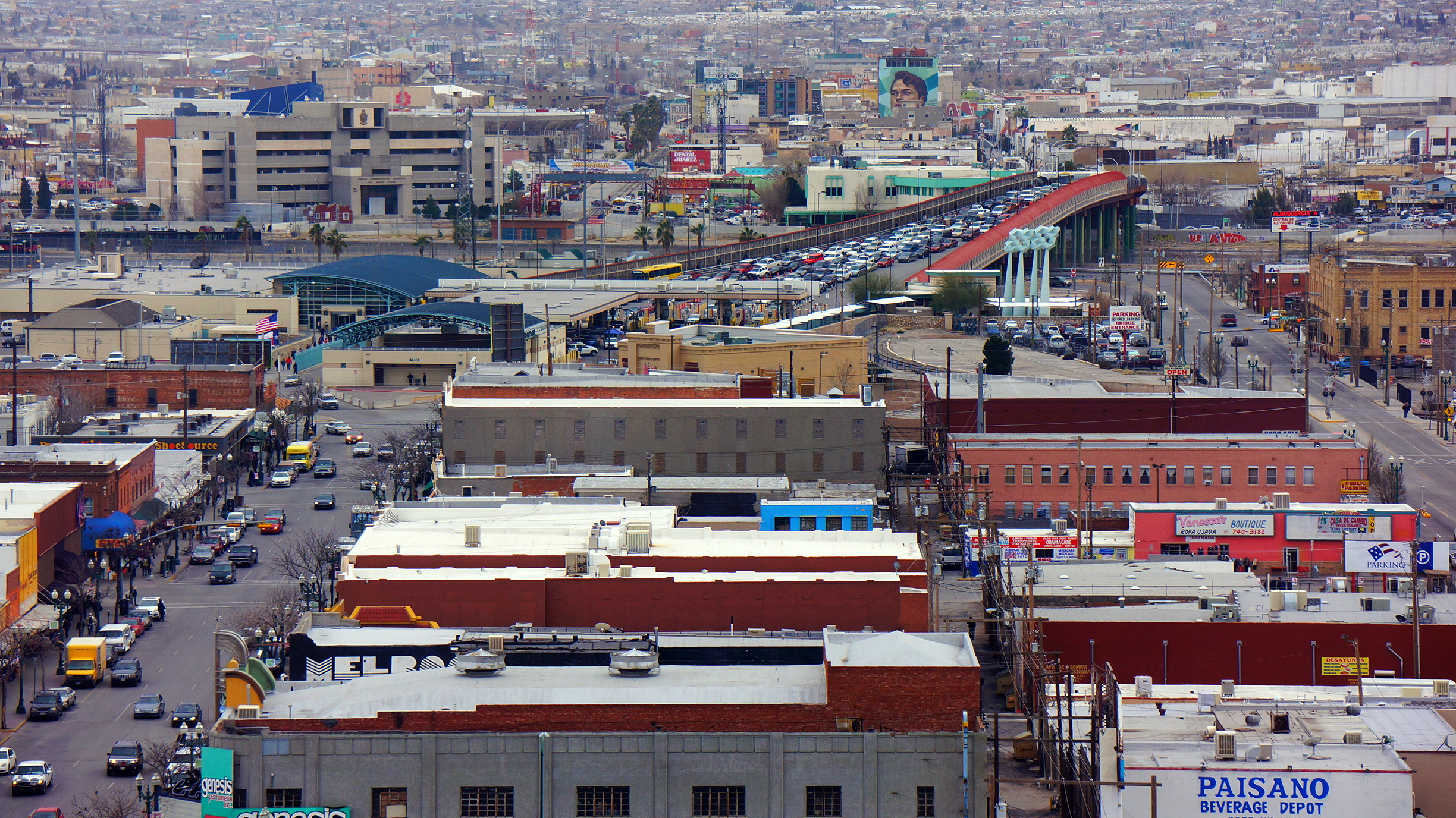
![]()
![]()

